Opium in deep India
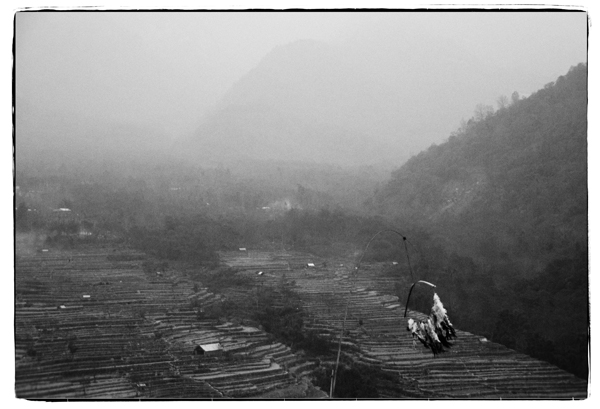
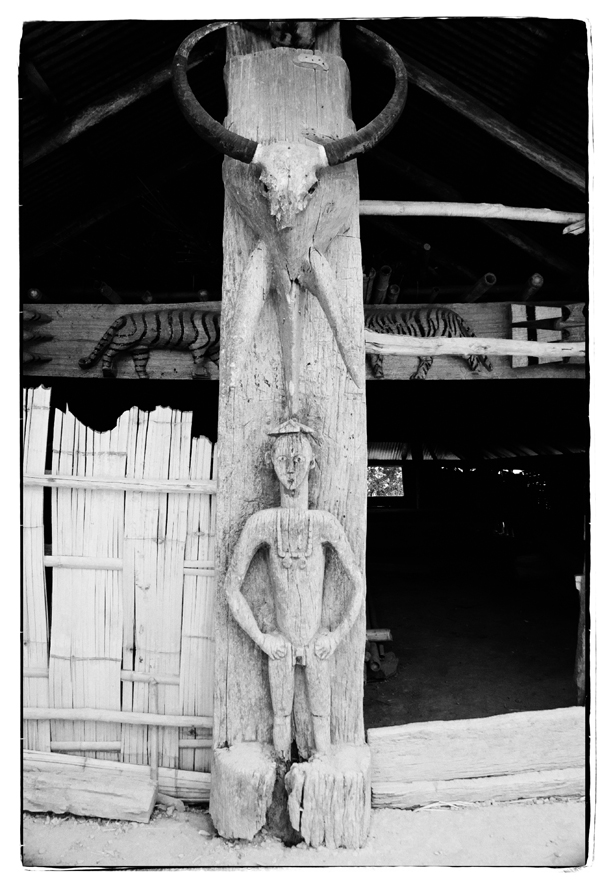
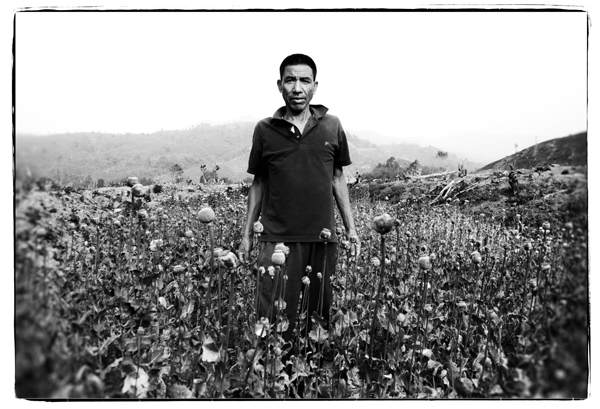
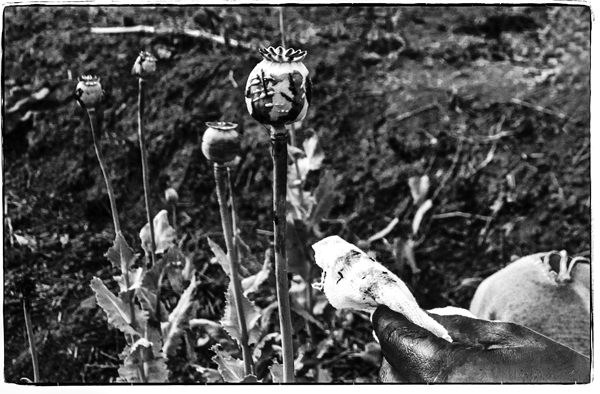
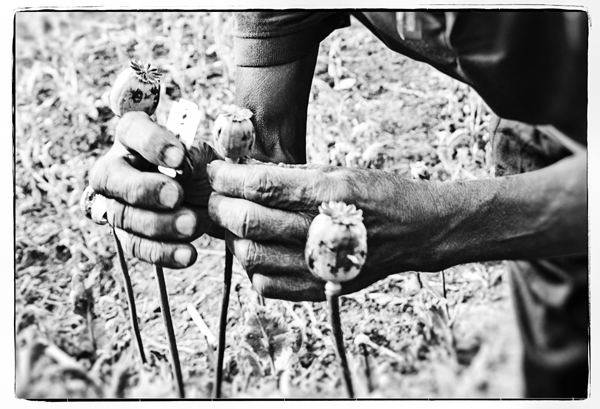
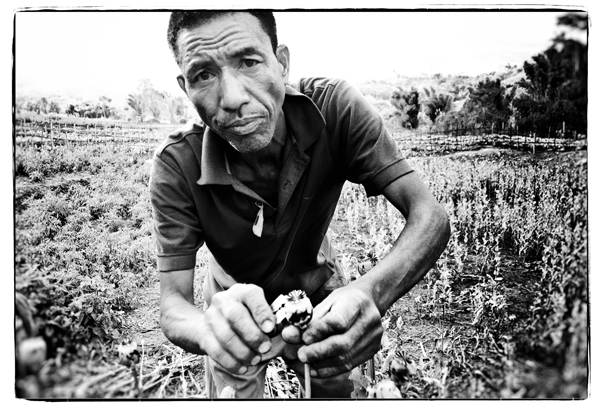
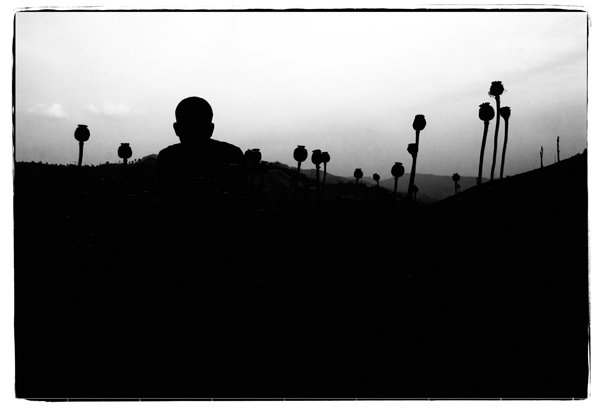
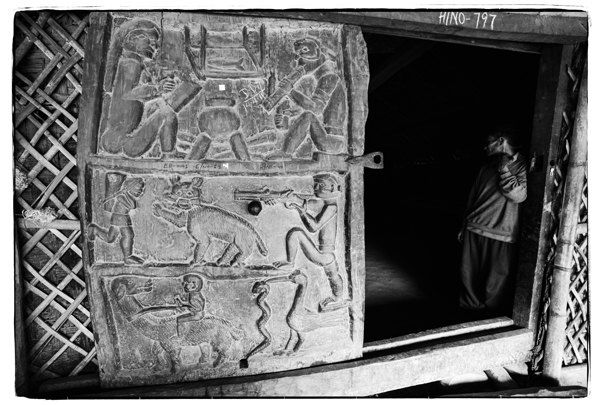
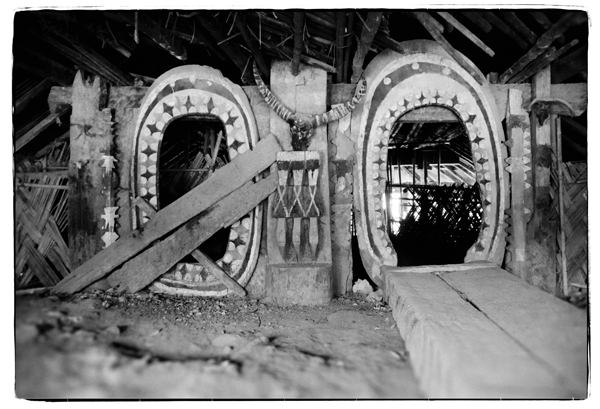

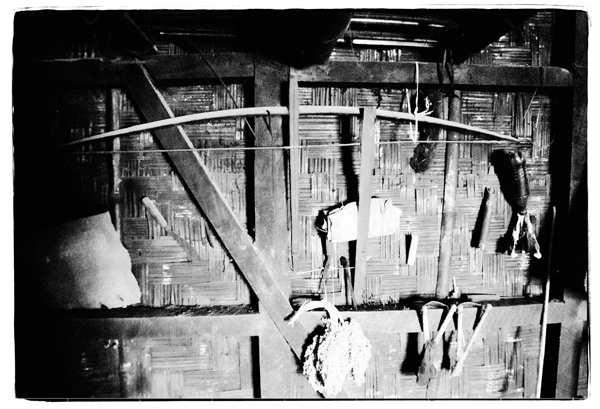
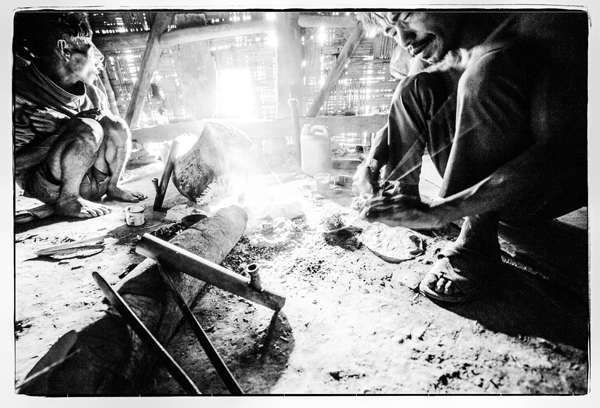
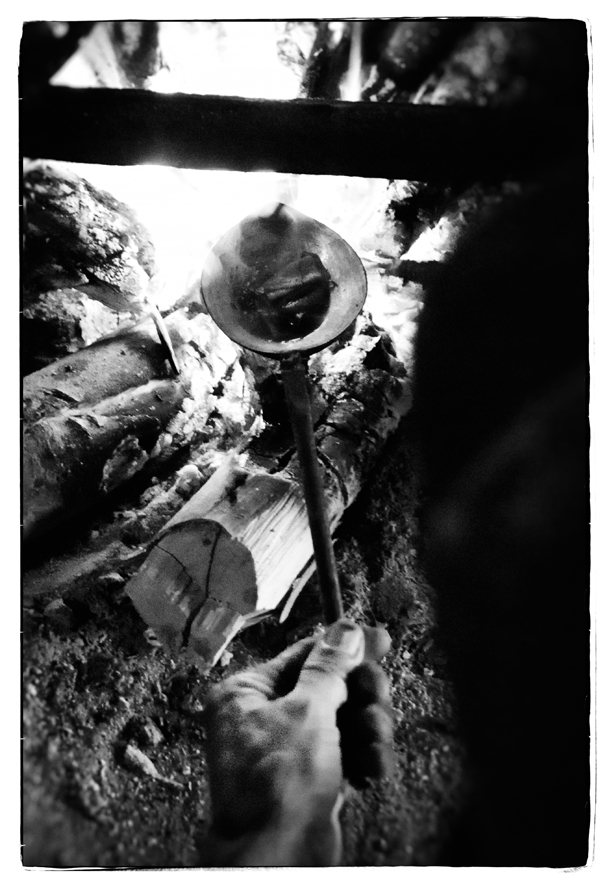
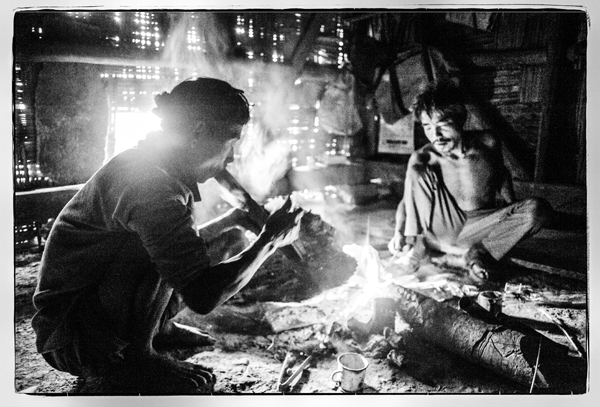
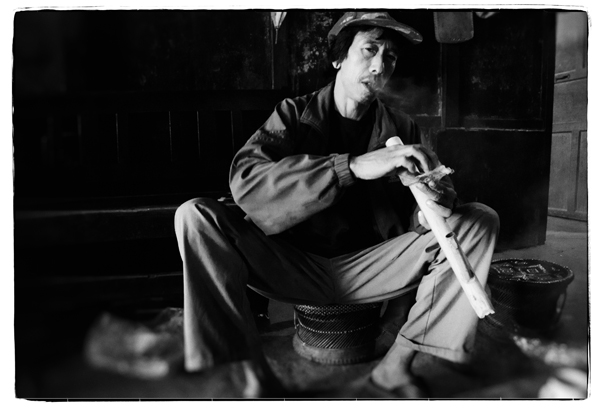
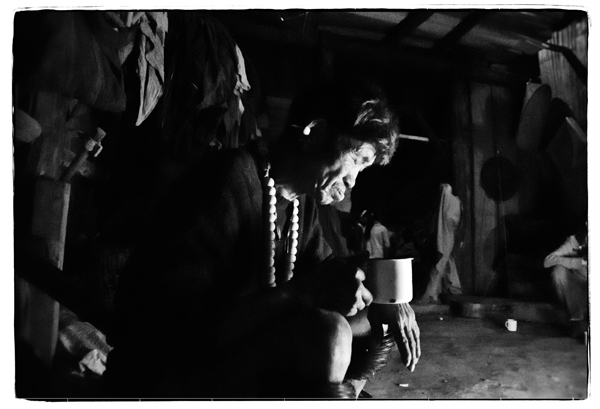
Nagaland
India
Get Directions →
Opium in deep India
Text. Agustina Vigano
Photography. Sebastian Vilariño
India
Sunrises in Assam plains, a land that used to be jungle and now is full of people where dust clouds arise as soon as bikes and cars, taxis and sellers wake up. We are heading towards Nagaland, a state neighboring Burma that once was part of this kingdom but was appropriated by English in favor of India a century ago.
We go in a shared jeep-taxi among local people who comes back to their villages through a winding hill road where the morning sun allows us to see charcoal deposits. Huge black holes are being emptied; one truck after another goes down to the plains while we enter the Naga Hill’s deep rainforest
One hour later we arrive to Shiyong, a village on top of the hill set in a strategic point for the hunter tribe Konyak because it’s panoramic view of the valley that allows seeing the enemies coming. They are famous for being headhunters. They used to hang on their necks and at the door of houses the skulls of the enemies as war trophies and signs of manhood. However, they are the most kind, welcoming and fun people with their friends. This tribe of Mongolian roots inhabits Shiyong keeping their oral tradition since immemorial times. There are many Konyak villages but each one speaks their own dialect.
In their community the woman is in charge of cooking, cleaning, collect water and farming. Their legs are tattooed to differentiate between married and single, men’s polygamy is common and wives must accept to share their husband with other women. Kids raise and care between themselves; it’s very common to see a 9 years-old girl with her 2 years-old brother hanging on the back while she washes clothes or plays.
Men gather at Morungs, a community house built on a strategic place used as social and training quarters. The chief of the village is the main voice and gain this title due to his great hunting skills. They used to have watching shifts to always be prepared for enemies’ arrival. Konyak men are distinguished by having face tattoos, stretched earlobes and the essential Dao –a 70 cm long machete hanging at their waist. Hunters and defenders of their village, these former warriors were a big threat and trouble to the English invaders who lost more than 6 battles in half a century.
It was by the end of 19th century with the Christian missions that animist belief was silenced -today only the elders still believe in forest spirits. Even though they could keep this tradition alive they couldn’t escape from domination. It was with opium that English could manipulate them and imposed the prohibition of headhunting, taming the fierce warriors.
A bit of history
Opium is present in ancient cultures of Middle East, Egypt and Rome. Arab merchants brought it to the East for medical purposes. It was used with this end during centuries because it’s analgesic qualities. The Arabs taught the Chinese about it’s recreational and narcotic use which was soon spread all over the country; the society was suffering of huge addictions until import of poppy was forbidden by 16th century. India’s plain areas and valleys become big fields of poppies. Families extract the nectar and once dry they sell it very cheap to the British East Indian Company in Kolkata where it was refined, loaded in ships and sent to China and despite the blockade was sold in the black market. This is how opium consumption started in India. At present times, the bordering areas of Nagaland and Mizoram in North East India is one of the major routes where Myanmar’s opium escapes
The Ritual
Phejin is waiting to host us at her home. The powerful smell of stew pork is calling us. The houses are set on pillars 3 meters above the land and the construction is entirely made of bamboo. The palm tree roof and walls of woven bamboo allows the smoke of the kitchen to leave the house. It’s one big room. At the centre a floating mood floor is both fireplace and kitchen and above it pork and cow meet smoke with the eternal fire of the big family.
We walked for hours outside the village, a hilly landscape with tea fields, vegetables and paddy fields. In a small valley hidden between hills, the poppies lie alone and the last petals are falling, the floor seems like a deep pink carpet.
The poppy, or papaber sumnifurum, has a long stem –between one meter to one and a half- that ends in a big, hard green ball where the pink petals grow until they fall, alerting that is time. Very superficial diagonal-wise cuts are made with a shaving blade on the head of the plant and in few seconds a thick, pink, almost rubber-like kind of milk is expelled. They use a cane clamp that holds a cotton cloth to absorb the nectar. It only takes some minutes to get dry and become brown. Its smell is subtle, almost imperceptible; this is raw opium. Once the cloth is completely brown is time to save it and put under the sun for two days.
After sunset, like every evening the group surrounds the fireplace sitting on small woven bamboo stools with their knees touching their chests. The man always brings his tools with him. On his left hand he hold a copper spoon –like a small pan with long handle – by the heat of the fire, he puts the cloth inside and adds a bit of water. On his right hand he has two sticks to mix, stir and turn the cloth to extract all the nectar. When the cloth has no more juice he takes it out. Now the water is completely brown and with a very strong smell.
It keeps cooking until all the water is almost evaporated. It becomes a kind of black rubber, the texture is similar to the end of a coffee. It’s time to put away from fire. He has some palm tree strings prepared that he adds on the spoon and mix it with the opium. At his side the black tea and the water bang are ready. Time has come.
At the end of the pipe he puts a small ball of the mixture with a little lighted charcoal. He breathes in deeply and slowly, he holds it for a moment and exhales a white smoke: thick, heavy, sweet and floral that soon floods the kitchen.
He drinks some tea while the pipe goes around the circle. The fire works as a hypnotizer, the smoke has a relaxing effect. The opium enters the body softening the muscles. Everything is slow and soft while we float on sweet poppy clouds.
